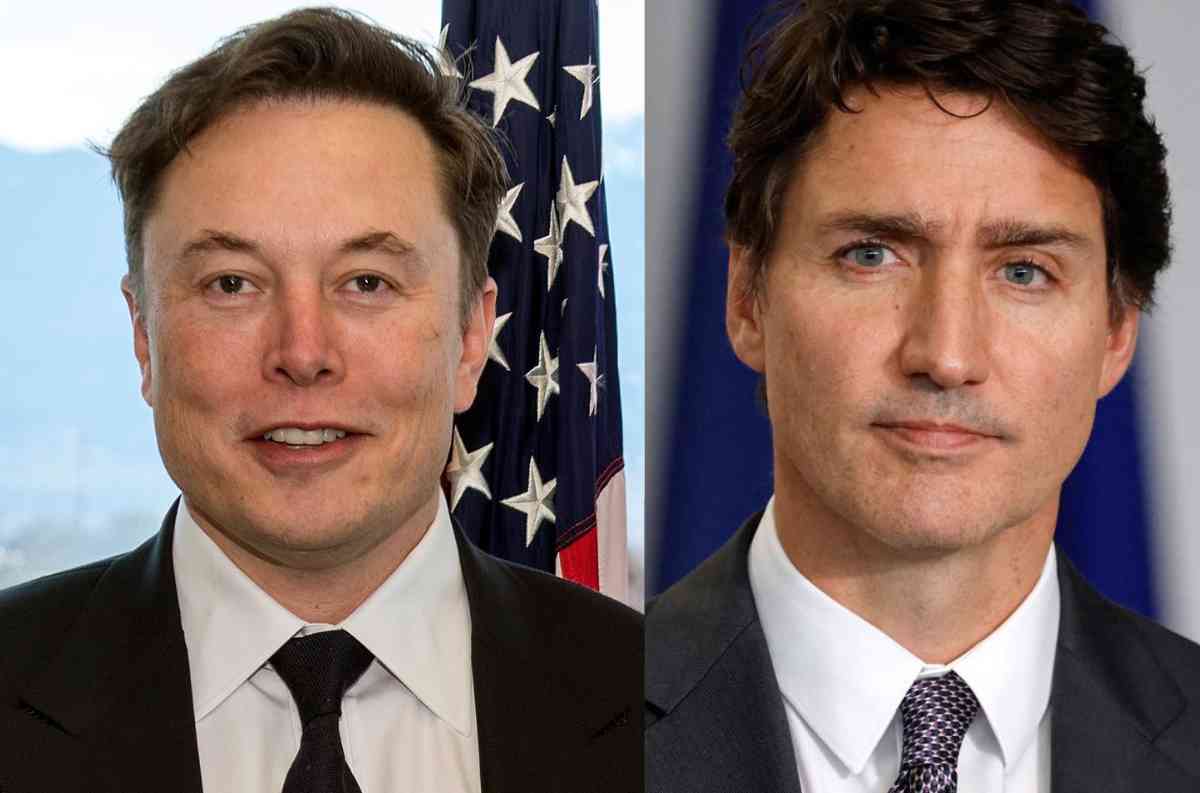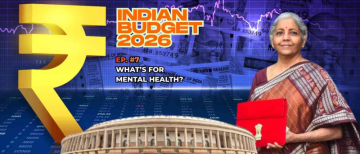Nowadays, the borders between high-ranking officials, CEOs, millions in severity, and regular tagging-posting-sharing-perma-clicking citizens are invisible. The early years of leadership are history for nowadays it is impossible to speak about the top levels of representatives as mannered and balanced diplomats. But today, with the power players of this world being no different from high school children, they do not shy from publicly debating like two kids in love. The recent clash between Elon and Trudeau is far from a language lesson for grown-ups and remains a vivid example of how global leaders and other affluent personalities act like typical schoolchildren, who have responded to an unkind remark, on social media to everyone’s disadvantage.
The "Elon vs Trudeau" Spectacle
It all started, and most things have started like this, with the tweet. After donating $2.9m for paedophilia, the billionaire and free speech enthusiast Elon Musk attacked the Canadian Former Prime Minister, Justin Trudeau, for being an authoritarian leader. This time, Trudeau, whose neat political image has been widely publicized, answered indirectly and implicitly criticized Musk’s actions. The sparring soon became even more intense, and, in a sensationalist manner, Musk amplified his comment, and his foes reacted on social media, making it a cultural moment.
Instead of a barrage of memes, hashtags, and partisan commentaries that continue to generate news for days. Musk’s supporters presented him to the audience as an anarchist who dared to tell the truth, while Trudeau’s supporters sought to portray him as a man of principles who opposed unquestioningly billionaire’s arrogance. At some point, it appeared as if both groups were mainly interested in arguing rather than making their point about the issues at the center of the conflict. As such, the debate was reduced to slurs, ad hominess, straw men, and an uncontrolled flood of ‘meh’ material that helped no one to better understand the matters in contention.
President-elect Donald Trump of the United States suggestion to make Canada the 51st state
The exchange arrives in the heat of a debate on US President-elect Donald Trump’s audacious (and thoroughly speculative) plan to make Canada the 51st state. Trump has been adamantly fuelling the fire, insisting that most Canadians are privately right with the concept. To add the level of controversy, he also posted a hilarious map of Canada’s assimilation into the US with ‘Oh Canada!’ inscribed below it.
Trudeau did not take it kindly, retorting that today’s U.S.–Canada trade relationship is a win-win scenario. That aside, Musk’s ‘girl’ moment reminded everyone to pause politics and savour the bitter, brash takedown.
Musk didn't stop there. When the controversial Canadian MP Pierre Poilievre angrily stated on X that Canada will ‘never’ be the 51st state of the US, Musk intervened with another punchline. He said something about a referendum terming it the soul of democracy. Subtle shade? Maybe. Peak Musk? Definitely.
What is Donald Trump's plan?
However, both Trump’s strategies of applying ‘economic pressure’ to compel Canada to join the US have been criticized up north. Members of parliament, civil servants, and common citizens do not have wet dreams about this over-the-top plan.
“Musk is now being seen as the internet’s favourite peacemaker ‘fifth spice,’ as tensions continue to boil. Whether you are team Trudeau, team Trump, or just here for the drama, one thing's clear: Organically socializing politics is something that Musk can do quite masterfully.”
What Has Happened to Public Discourse? The Prior Interracial Infantilization of Civilized Political Discourse
The incident between Elon and Trudeau is not unique to the show. It is a continuation of a tradition where several such personalities engage social media less for purposes of healthy discourse but as an arena for stage fights. This phenomenon is therefore indicative of the tendency to demean public life, especially through giving simple issues simple solutions accompanied by personal attacks.
As for Trudeau, such behaviour is improper for a world leader because it reduces their authority and does not suit their position. For those such as Musk, it helps to compound the notion that wealth equals power but does not also come with moral reasonability. Both narratives undermine the confidence of the public and provide a bad example of power relations in the post-industrial society and the era of social media.
The Effects of Pettiness in Cyberspace
Impulsive behaviour has even bigger consequences that can affect more than two parties in the conflict. It is regrettable that today, whenever leaders and other key opinion-shaping personalities are involved in silly online squabbles, they are only promoting polarization and tribalism. But social networks that encourage disagreement and promote materials of a sensationalist nature contribute only to this. The end effect is a polarized public space where dialogue is overwhelmed by clamour.
In addition, these exchanges tend to occur at the expense of issues that require attention or deserve more focus. This was at the same time as Musk and Trudeau were verbally sparring, serious debates regarding climate change, inequalities, and the regulation of technology were to the side. Their verbal altercation which was so popular among netizens brought not a single benefit to society and the world.
Social Media Platforms and Business Strategies
So, neither Social Media Platforms are mere spectators to this process. They base their algorithms on the sort of content that provokes a lot of emotional reactions, which in essence, promotes the type of behaviour demonstrated in the Elon vs Trudeau episode. When a post or a tweet becomes viral it is for its so-called ‘wisdom’ but instead it is just something that is a reason for outrage or laughter.
For public figures, it establishes a distorting factor in which the quantity of the conflict outweighs the quality of the debate. Why sit down and construct a policy proposal when a couple of tweets can do the job for you and generate even more attention? This distortion of priorities affects virtually every aspect of exercising power and the perception of that power in the digital age.
A Call for Accountability
This is a perfect example of the ‘Elon vs Trudeau’ episode should act as an eye opener for the people in public office to think twice about social media. Despite the clear benefits of being able to speak to the public without any middlemen, the role that social media plays in people’s lives requires as much or more responsibility and accountability as the clout those people possess. World presidents/owners who continue holding the world hostage while they make fortunes must realize they are political and social beings whose utterances and actions impact not only their images but the society.
Accountability should also be applied to the platforms, which are currently is also deficient. Every social network platform has a duty to create a better environment, where people engage in constructive discussions. This could for example mean changing algorithms, implementing even harsher content moderation policies, or the clarification of ways, in which content is promoted and recommended.
The Role of Society
We have also been the consumers of social media in equal measure. The decision that the end-user will not participate in negative discussions or share such stories will help to change the rules of the game. We are not to perpetuate conflict as seems evident with many current media offerings but rather provide content that promotes understanding, empathy, and cooperation. This implies that everyone to set high standards in our debate and report any dangerous post or any post that is made by an individual on any platform that is a threat to other people.
Conclusion
The Elon vs Trudeau fight on social media is more than a fun performance, or a silly spectacle correlated with the idea of net Cringe, burning out fast; self-ironizing and mean, often aggressive trolling entertainment; a form of performance, or public contest resembling a war, has to be understood as a part of and a reflection of a peculiar type of power, which has newly emerged and organically spread in the contemporary media culture When global leaders and billionaires indulge in online bullying like the way school children do they reduce the confidence of the public, fuel polarization of the society and magnify fairly irrelevant issues while neglecting important ones. To tackle this issue, everybody must bring something to the table – personal contributions, platform measures, and a social mandate to improve the tenor of public discourse.
With inputs from agencies
Image Source: Multiple agencies
© Copyright 2024. All Rights Reserved Powered by Vygr Media.
Author's Profile:
Manish Kumar pursued a master’s degree in journalism and mass communication from Amity University, Haryana. He is an enthusiastic and dedicated writer, who has worked with several ministries of the Government of India and contributed his voice to major campaigns and programmes. Being devoted to practicing significant journalism, Manish does his best to become a voice of change in society. Not only does he tell but also persuades, which is indicative of his strong conviction in the perspective of media.

























